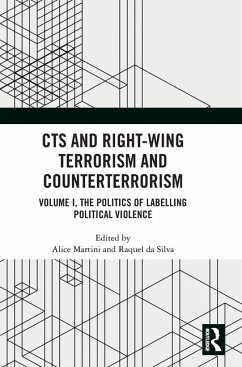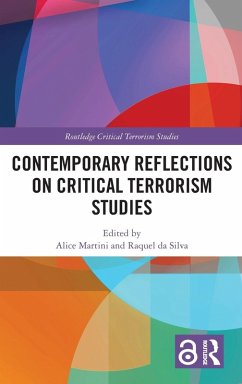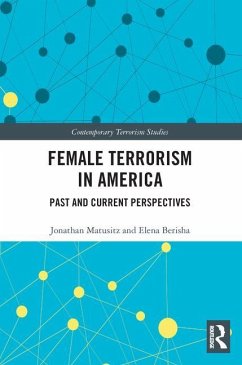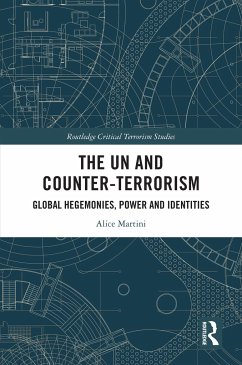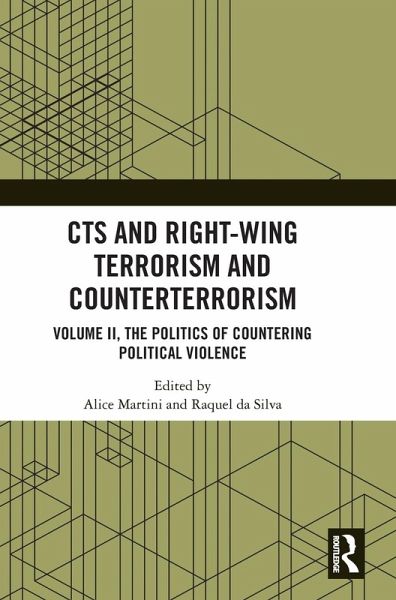
CTS and Right-Wing Terrorism and Counterterrorism
Volume II, The Politics of Countering Political Violence
Herausgegeben: Martini, Alice; da Silva, Raquel
Versandkostenfrei!
Versandfertig in 6-10 Tagen
154,99 €
inkl. MwSt.
Weitere Ausgaben:

PAYBACK Punkte
77 °P sammeln!
This volume is a timely contribution to the current debates and potential efforts to study and counter the phenomena of extreme right violence in a period when the rise of right-wing extremism is being witnessed across the globe. Against this backdrop, the violent radicalisation and extremism of individuals and groups belonging to the extreme right threaten to undermine and destabilize societies and democratic orders, leaving a research gap that has only started to be filled in recent years, but that is still quite wide when it comes to counter-terrorism approaches to extreme right violence. L...
This volume is a timely contribution to the current debates and potential efforts to study and counter the phenomena of extreme right violence in a period when the rise of right-wing extremism is being witnessed across the globe. Against this backdrop, the violent radicalisation and extremism of individuals and groups belonging to the extreme right threaten to undermine and destabilize societies and democratic orders, leaving a research gap that has only started to be filled in recent years, but that is still quite wide when it comes to counter-terrorism approaches to extreme right violence. Learning from the past, and trying to avoid similar mistakes, this volume creates a much-needed space for open, honest, and ethical debate around countering extreme right violence, answering social and political calls to debate how to counter this kind of violence. This volume brings together a group of interdisciplinary scholars to contribute to national and international, academic and policy debates about countering extreme right violence from a critical perspective.
Volume II focuses particularly on exploring how extreme right violence has been approached in different spatial and temporal contexts, examining how the criminal justice system has dealt with the threat of and actual violence perpetrated by the extreme right, deconstructing current counter-terrorism approaches from feminist and gender perspectives, and formulating a critical approach to countering extreme right violence. It will be of great interest to all students of terrorism studies, security studies, international relations, and political science in general.
The chapters in this book were originally published in Critical Studies on Terrorism.
Volume II focuses particularly on exploring how extreme right violence has been approached in different spatial and temporal contexts, examining how the criminal justice system has dealt with the threat of and actual violence perpetrated by the extreme right, deconstructing current counter-terrorism approaches from feminist and gender perspectives, and formulating a critical approach to countering extreme right violence. It will be of great interest to all students of terrorism studies, security studies, international relations, and political science in general.
The chapters in this book were originally published in Critical Studies on Terrorism.





